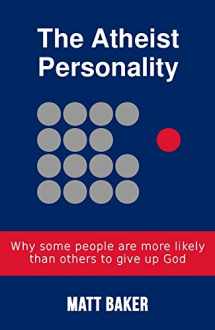
The Atheist Personality: Why some people are more likely to give up God
ISBN-13:
9780994834669
ISBN-10:
0994834667
Author:
Matt Baker
Publication date:
2016
Publisher:
UsefulCharts
Format:
Paperback
226 pages
FREE US shipping
Book details
ISBN-13:
9780994834669
ISBN-10:
0994834667
Author:
Matt Baker
Publication date:
2016
Publisher:
UsefulCharts
Format:
Paperback
226 pages
Summary
The Atheist Personality: Why some people are more likely to give up God (ISBN-13: 9780994834669 and ISBN-10: 0994834667), written by authors
Matt Baker, was published by UsefulCharts in 2016.
With an overall rating of 3.8 stars, it's a notable title among other
books. You can easily purchase or rent The Atheist Personality: Why some people are more likely to give up God (Paperback) from BooksRun,
along with many other new and used
books
and textbooks.
And, if you're looking to sell your copy, our current buyback offer is $0.3.
Description
Four years ago, a total of 23,697 individuals participated in an online survey as part of my PhD dissertation project. Over ten thousand of those individuals were atheists who had grown up attending church and therefore my project ended up becoming one of the largest studies of deconversion ever done. Participants were asked about their personality traits, their childhood experiences, and their current beliefs. This book presents the complete findings from this ground-breaking research and provides empirically-based answers to questions such as: - Are certain personality types more likely to become atheists than others? - Are atheist church-leavers more angry, arrogant, and/or immoral than theists who still attend church? (Spoiler alert: they're not!) - What do most atheists believe when it comes to questions of worldview? Please note that the book does not discuss the merits of either atheism or theism, nor does it support one viewpoint over the other. It simply focuses on the differences between the two groups as determined by the survey results. The personality models discussed in the book include one similar to the popular Myers-Briggs Type Indicator (TM) as well as the more scientifically-based "Big Five" theory of personality.


We would LOVE it if you could help us and other readers by reviewing the book
Book review

Congratulations! We have received your book review.
{user}
{createdAt}
by {truncated_author}


